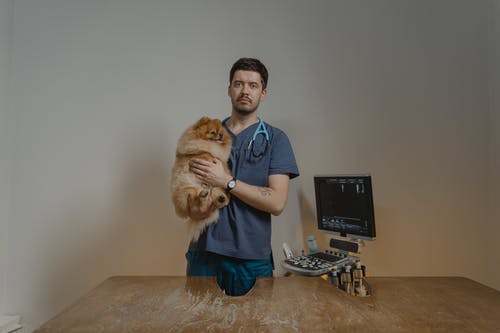Being a pet parent comes with the responsibility of providing the best possible care for your pet. Alongside a balanced diet and regular exercise, a crucial part of this care involves regular pet vaccination and parasite prevention. These two elements significantly contribute to a pet’s health, enhancing their immunity and helping them enjoy a longer, happier life.
The Role of Regular Vaccination in Pet’s Longevity
The Need for Vaccination
In pet health, vaccinations, particularly dog and cat vaccinations, play an indispensable role. These vaccinations act as a protective shield for your furry companions, safeguarding them from various contagious and often life-threatening diseases. The importance of dog and cat vaccinations cannot be emphasized enough, as this crucial preventive healthcare step can notably amplify their life expectancy.
Vaccination and Immunity Enhancement
When we talk about vaccinations, its core role lies in enhancing your pet’s immunity. By introducing a weakened or inactivated form of disease-causing agents, vaccinations stimulate the production of antibodies in your pet.
This process prepares their immune system to combat future encounters with these harmful agents effectively. Hence, vaccinated pets develop immunity against various diseases, including Canine Distemper, Canine Parvovirus, and Feline Panleukopenia.
Risks vs. Benefits of Vaccinations
The process of immunizing your pets, although significantly beneficial, is not entirely without risks. Some potential concerns related to vaccination can include:
- Mild side effects: Common reactions include fever, swelling at the vaccination site, and mild discomfort.
- Allergic reactions: Though rare, some pets can exhibit severe allergic reactions to vaccines.
Despite these risks, the benefits of vaccination notably outweigh these concerns. The advantages include:
- Protection from deadly diseases: Vaccines protect against severe diseases such as rabies, parvovirus, and distemper.
- Prevention of zoonotic diseases: Vaccines also prevent diseases that can potentially be passed to humans.
- Enhanced quality of life: Vaccinated pets experience better overall health, thus improving their quality of life.
- Legal compliance: Vaccination is often a legal requirement for pet ownership in many regions.
Parasite Prevention and Its Impact on Pet Longevity
The Threat of Parasites
Similar to vaccinations, parasite prevention in pets is a crucial measure for maintaining pet health. Parasites like fleas, ticks, and intestinal worms pose a grave threat to our pets, leading to diseases such as Leptospirosis and Sarcoptic mange. Parasitic infections can cause severe discomfort, impact the pet’s overall wellness, and shorten its lifespan if not treated timely.
Effective Parasite Prevention Methods
Effective parasite prevention methods include monthly treatments that come in various forms, like topicals, oral treatments, and injections. Parasite prevention forms a significant part of veterinary wellness plans, paving the way for better pet health and increased lifespan. Regular parasite prevention can effectively safeguard your pets from potential infections, improving their quality of life.
The Correlation Between Vaccination, Parasite Prevention, and Longevity
- Protection Against Contagious Illnesses
- Avoidance of Costly Treatments
- Preventing Diseases that can be passed between Animals and Humans
- Compliance with Animal Regulations
- Improved Quality of Life
How Regular Check-ups Support Vaccination and Parasite Prevention
Another fundamental component of pet healthcare and preventive care is regular veterinary check-ups. These visits to veterinary clinics like Providence South Animal Hospital ensure early detection of potential health issues, monitor your pet’s weight, assess behavior, and, importantly, keep vaccination and parasite prevention up to date.
Vaccination Schedule for Pets
Understanding the Vaccination Schedule
Different pets require different vaccines, and the timing of these vaccines is just as important as the vaccines themselves. Vaccination schedules may vary based on age, breed, lifestyle, and risk of exposure. Titers in pets can be utilized to understand their immunity levels and guide the vaccination schedules.
Adherence to Vaccination Schedules
Adhering strictly to your pet’s vaccination schedule comes with many benefits. These benefits broadly encompass health, legal, and societal perspectives:
- Maintaining Optimal Immunity: Regular vaccination ensures sustained antibody production in your pet’s body. This production is vital in protecting your pet against a myriad of diseases.
- Fulfilling Legal Requirements: Many states and local areas require pets, especially dogs and cats, to receive certain vaccinations, like the rabies vaccine, by law. By sticking to the recommended vaccination schedule, you ensure your furry friend complies with these legal requirements.
- Contributing to Public Health: Certain pet diseases can crossover into human populations. By ensuring your pet is vaccinated and healthy, you indirectly contribute towards maintaining public health as well.
Antibody Titers and Vaccinations
Antibody titers are blood tests that can provide insights into your pet’s immunity. While they don’t replace the need for vaccinations, they can help your vet assess whether your pet has a reasonable level of protection against specific diseases, thus helping adjust the vaccination schedules if needed.
Conclusion
Providing a long, healthy, and happy life for our pets is every pet parent’s goal. A significant contributor to this goal lies in regular vaccination and parasite prevention. By understanding how these two elements affect our pet’s health, we can make informed decisions for their healthcare. Regular consultations with a trusted vet, sticking to vaccination schedules, and adopting effective parasite prevention measures can ensure our pets lead a life full of wagging tails and purring contentment.









